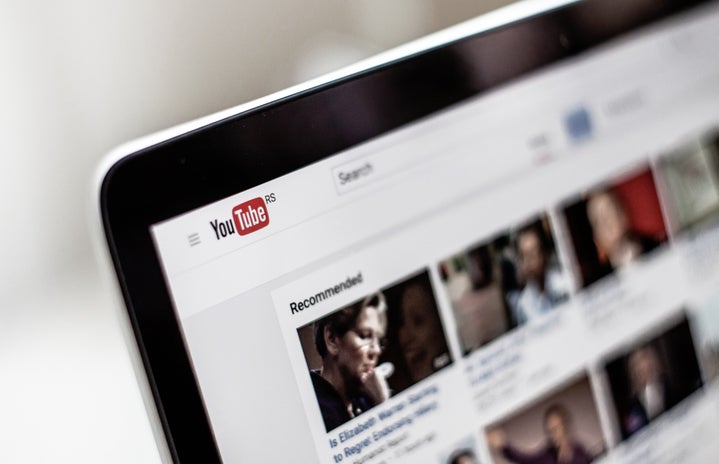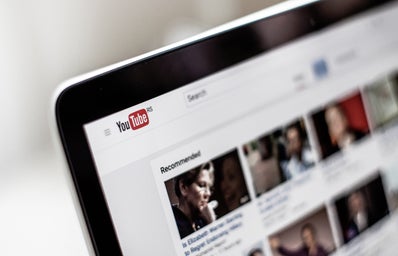Even though the college admissions scandal took place on American grounds, it doesn’t mean it didn’t rattle the bones of every hardworking student across the globe. Lori Loughlin, Felicity Huffman and other high profile parents have been caught in bribing officials and cheating entrance exams at top universities such as the University of Southern California (USC) and UCLA for their children to attend. Loughlin was accused of paying the mastermind behind the scandal – William Singer, $500,000 to admit her daughters, Olivia Jade and Bella Giannulli into USC.
While Loughlin pleads not guilty in her part of the college admissions scandal, her daughter, Olivia Jade, has come under fire for a comment she made on her YouTube channel. The video has been deleted, but Olivia states she doesn’t really care about going to school.
“I don’t know how much of school I’m going to attend, but I’m going to go in and talk to my deans and everyone and hope I can try and balance it all,” Olivia said. “But I do want the experience of game day and partying; I don’t really care about school.”
Throughout her entire Youtube channel, Olivia makes it clear that she’s more interested in pursuing a future as a YouTuber, like her fellow famed friends David Dobrik and Trisha Paytas.
Unbeknownst to Olivia, she is following the path of several YouTubers who have ditched the books to become a full-time vlogger, content creator, and influencer. As these creators flaunt their sponsorship deals, merch, and all the luxuries that come with it, they squash the importance of education under their expensive Yeezy shoes. Education is now overrated, outdated, and uncool.
For instance, Jake Paul, a YouTuber with a multi-million dollar net worth, released a rap called “My Teachers,” in which he bashes his former instructors for not teaching him anything useful in school.
DIY YouTubers such as LaurDIY and Wengie release timely do-it-yourself content on back to school season, showing audiences ways to glam up their school supplies. The end result is often useless and draws away from the importance of succeeding in school. For instance, there is one ‘life hack’ floating around on YouTube in which vloggers encourage students to fake word counts on their essays by highlighting certain texts in white.
And while some YouTubers have legitimate reasons for not attending post-secondary education, many young and impressionable audience members are often left to think that education is something not worth pursuing, and who could blame them? With the glamorous lives of YouTubers, it’s not hard to imagine that this is a viable career option.
But YouTubers like Jake Paul and Emma Chamberlain are only a small percentage on the platform that do make a living off their videos. Additionally, nearly 97 per cent of aspiring YouTubers won’t make more than $16,800 a year, according to a study conducted in Germany. However, even with numbers like these that reflect the reality of what it pays to be a YouTuber, there is still the temptation to drop out and try to make it big.
But there is an underlying problem with this kind of mentality. YouTubers that flaunt their fame and money and discredit the educational system are making the wrong impression on younger audiences who don’t know any better. Having a passion for film making or editing videos is one thing – chasing dreams of endless YouTube sponsorships, travel deals, and giant mansions is another. Audiences are taught that education is something that isn’t Instagrammable – or would give them thousands of likes on Twitter.
Education isn’t something that should be glamorized. It’s hard work, and it’s a learning opportunity for everyone. Yes, learning algebra, sohcahtoa, or reciting Shakespeare for English class may not seem like useful information to have in the future. However, the skills that you acquire in school are extremely valuable. You learn to work together in a team, to navigate through deadlines, find your words in an argumentative essay, as well as valuable skills like punctuality and organization. YouTubers often fail to see that side of the spectrum.
Should we ‘cancel’ these YouTubers as our social media-frenzied culture calls it? Absolutely not. Canceling doesn’t solve any problems – it just snuffs them out and doesn’t let anyone grow from their faults. Instead, YouTubers should realize that a majority of their watchers are young, and from there, pick their words carefully. Then in turn, we as the audience must be smart enough to realize that any YouTuber who talks down on education, isn’t someone worth idolizing.



